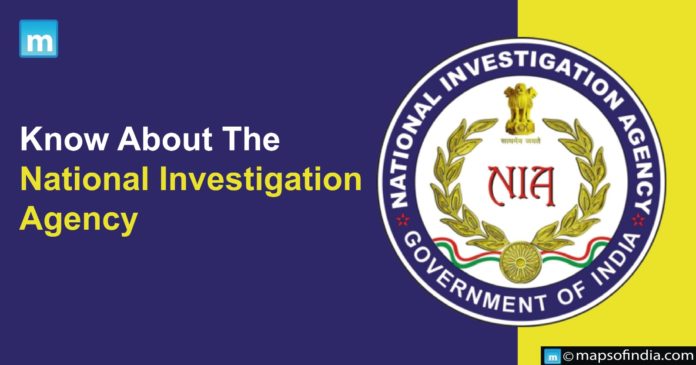National Investigation Agency (NIA)
The National Investigation Agency (NIA) is India’s main anti-terrorism task force. Under a written order from the Ministry of Home Affairs, the states can give it free of special permission. After the deadly 26/11 terrorist attack in Mumbai, the National Investigation Agency Act 2008 was passed by the Indian Parliament on December 31, 2008, establishing the agency. The Indian government established the NIA after it became clear that a special entity was required to handle terror-related activities in India. The headquarters is situated in Delhi.
Vision
The organization strives to be a professional investigation organization that follows the highest international standards. Establishing a highly-skilled, team-oriented workforce will set national standards of excellence in counterterrorism and other national security-related investigations. It also aims to deter potential and existing terrorist groups and individuals. Its objective is to develop a database for every terrorist information.
NIA (Amendment) Bill 2019
The Parliament approved a bill in December 2008 that would have created the National Investigation Agency. According to the bill, the NIA has concurrent jurisdiction, giving the Central Agency the authority to look into terror attacks anywhere in the nation. These attacks include those that pose a threat to the nation’s sovereignty and integrity involve bombings, hijackings of ships and aircraft, and target nuclear facilities. The High-Quality Counterfeit Indian Currency Smuggling Offenses are now covered by the definition of a terrorist act intended to undermine the country’s monetary stability under the NIA Act’s amendments, and the NIA is currently authorized to investigate them.
The agency’s ground staff could come from its existing central staff and security organizations in the national capital. In the states, it could take permanent deputations from the state police.
On Tuesday, December 30, 2008, President Pratibha Patil gave her assent to the legislation passed during the last session of the parliament, making the National Investigative Agency Bill and Unlawful Activities (Prevention) Amendment Bill into law. On July 17, 2019, the Parliament approved the NIA (Amendment) Bill 2019. The bill seeks to strengthen the NIA’s investigative capabilities. It enables the NIA to investigate terrorist attacks against Indians and Indian interests abroad.
Jurisdiction
For the trial of cases filed at various NIA police stations under Sections 11 and 22 of the NIA Act 2008, the Central Government of India has notified several Special Courts. The Central Government decides any disputes regarding the authority of these courts. A judge, the Central Government, chooses, on the recommendation of the Chief Justice of the High Court with jurisdiction over that area presides over these. In addition, the Supreme Court of India is permitted to transfer cases from one special court to any other special court inside or outside the state if doing so serves the interests of justice in light of the conditions currently in effect in any given state.
The NIA has been successful in combating terrorism in many situations. It has been an essential part of protecting the country.




